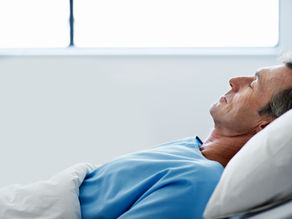Acute Brain Injury
What is acute brain injury?
An acute brain injury refers to a sudden injury to the brain, often caused by trauma (such as a fall or accident), stroke, infection, or a lack of oxygen (hypoxia). It can affect how the brain communicates with the body, leading to a wide range of physical, cognitive, and emotional challenges. These injuries can vary from mild to severe and may impact a person’s ability to move, think, speak, or feel as they did before.
What causes acute brain injury?
Common causes of acute brain injury include:
-
Traumatic head injuries (falls, road accidents, sports injuries)
-
Strokes (caused by a clot or bleed in the brain)
-
Infections such as meningitis or encephalitis
-
Oxygen deprivation during events like cardiac arrest or near-drowning
-
Brain surgery or complications during medical procedures
What does acute brain injury feel like?
Symptoms can vary widely depending on the area and severity of the injury. People may experience:
-
Muscle weakness or stiffness, often on one side of the body
-
Balance and coordination problems
-
Fatigue that doesn’t improve with rest
-
Difficulty speaking or understanding words
-
Changes in mood or behaviour
-
Pain, tingling, or altered sensation in affected limbs
-
Many people also report feeling frustrated, anxious, or overwhelmed as they adjust to changes in their body or abilities.
How can physio help?
Physiotherapy plays a vital role in rehabilitation after an acute brain injury. It helps:
-
Improve mobility and strength
-
Restore balance and coordination
-
Retrain movement patterns through repetition and specific exercises
-
Build confidence after a loss of function
-
Support recovery of independence in daily activities
-
It’s also an important part of reducing complications such as joint stiffness, muscle shortening, and pressure injuries.
What treatment will Village Physio do?
At Village Physio, we provide specialist home-based neurological physiotherapy. Depending on your needs, we may offer:
-
Gentle stretching and strengthening exercises
-
Gait re-education to improve walking
-
Balance training and core stability work
-
Functional movement practice, such as standing up, transferring, or reaching
-
Manual therapy to reduce stiffness and improve comfort
-
Education for family and carers to help support recovery between sessions
What can I do to reduce my discomfort whilst I wait for an appointment?
-
Try gentle movement of affected limbs if safe, or assist with movement to reduce stiffness
-
Change positions regularly—avoid lying or sitting in one position for too long
-
Use supportive seating or cushions to maintain good posture and avoid discomfort
-
Stay hydrated and nourished to support healing
-
Engage the mind with reading, listening to music, or conversation—even small mental activities can aid recovery
-
Involve carers or family in safe, supported activity, such as assisted sitting or light movement










